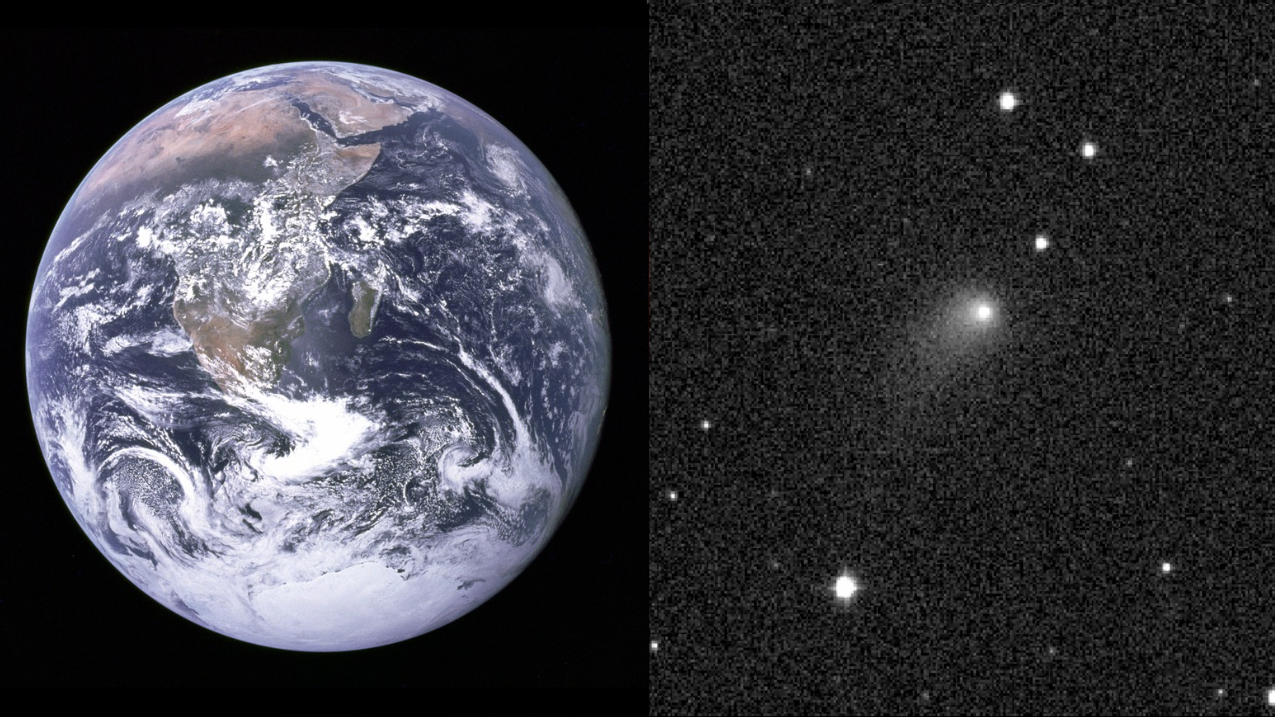Searching for Time Travelers, Scientists Look to Social Media

Breaking space news, the latest updates on rocket launches, skywatching events and more!
You are now subscribed
Your newsletter sign-up was successful
Want to add more newsletters?

Delivered daily
Daily Newsletter
Breaking space news, the latest updates on rocket launches, skywatching events and more!

Once a month
Watch This Space
Sign up to our monthly entertainment newsletter to keep up with all our coverage of the latest sci-fi and space movies, tv shows, games and books.

Once a week
Night Sky This Week
Discover this week's must-see night sky events, moon phases, and stunning astrophotos. Sign up for our skywatching newsletter and explore the universe with us!

Twice a month
Strange New Words
Space.com's Sci-Fi Reader's Club. Read a sci-fi short story every month and join a virtual community of fellow science fiction fans!
Time travelers, if they exist amongst us, have yet to betray their period-hopping ways online, according to a fun, new study aimed at finding visitors from another time, based on their digital footprints.
Theoretically, the idea of time travel forward in time should be possible according to Einstein's General Theory of Relativity. In fact, scientists have already sent teensy particles called muons forward in time. But sending a large object, such as an entire person, into the future remains in the echelons of science fiction, for now.
Even so, over a summer poker game, Robert Nemiroff, an astrophysicist at Michigan Technological University in Houghton, sparked an amusing discussion with his students by asking: If time travelers were living in our midst, would they leave traces of their presence online?
The researchers chose two recent events — the March 2013 election of Pope Francis to lead the Catholic Church, and the sungrazing Comet ISON, which was first spotted in September 2012 — to search for premature online references to time travelers. Perhaps careless time travelers made mention of Pope Francis or Comet ISON on Twitter or Facebook before they were supposed to know about them, the researchers said.
"The Internet is essentially a vast database, and I thought that if time travelers were here, their existence would have already come out in some other way, maybe by posting winning lottery numbers before they were selected," Nemiroff said in a statement. [Time Travel? The Plausibility of 10 Sci-Fi Concepts]
Nemiroff and his students combed through results from search engines, such as Google and Bing, and social media sites, including Facebook and Twitter. Ultimately, their hunt came up empty.
"In our limited search we turned up nothing," Nemiroff said in a statement. "I didn't really think we would. But I'm still not aware of anyone undertaking a search like this."
Breaking space news, the latest updates on rocket launches, skywatching events and more!
The researchers did find one blog post that mentioned a "Pope Francis" before Jorge Mario Bergoglio, then-Archbishop of Buenos Aires, was elected to lead the Catholic Church, but they think the reference was accidental, rather than a message from a time-traveling visitor.
Nemiroff and his students even created their own special blog post in September 2013 that asked potential time travelers to email or tweet "#ICanChangeThePast2" or "#ICannotChangeThePast2" a month earlier, on or before August 2013. But, they again found no signs of time travel.
Still, Nemiroff, whose research typically covers more serious topics such as gravitational lensing and gamma-ray bursts, said the study, while focused on a seemingly far-out concept, was an enjoyable undertaking.
"I'm always doing stuff on space and time," he said. "This has been a lot of fun."
Nemiroff said the study was conducted during his students' own time, and without the use of any grant funding. The researchers presented their findings (or lack thereof) during a poster session Monday (Jan. 6) at the 223rd meeting of the American Astronomical Society in Washington, D.C.
Follow Denise Chow on Twitter @denisechow. Follow us @Spacedotcom, Facebook or Google+. Originally published on SPACE.com.

Denise Chow is a former Space.com staff writer who then worked as assistant managing editor at Live Science before moving to NBC News as a science reporter, where she focuses on general science and climate change. She spent two years with Space.com, writing about rocket launches and covering NASA's final three space shuttle missions, before joining the Live Science team in 2013. A Canadian transplant, Denise has a bachelor's degree from the University of Toronto, and a master's degree in journalism from New York University. At NBC News, Denise covers general science and climate change.
